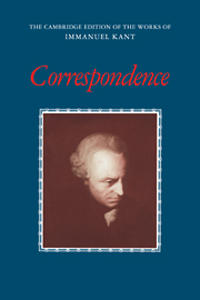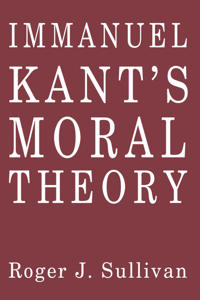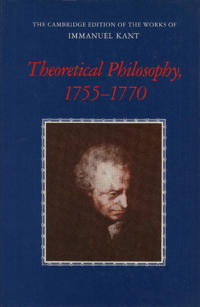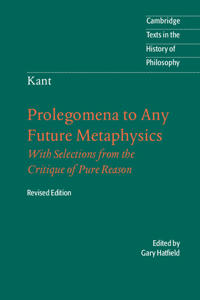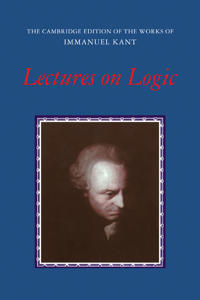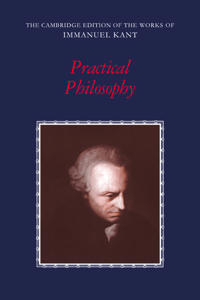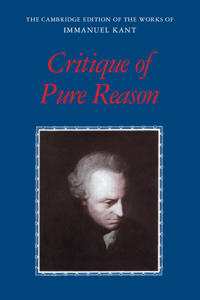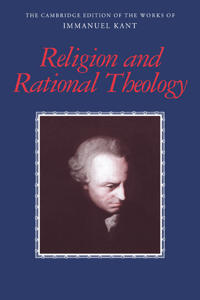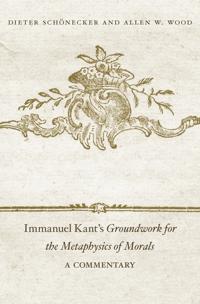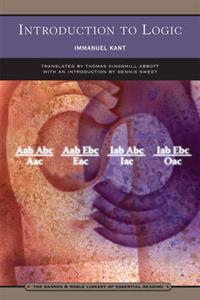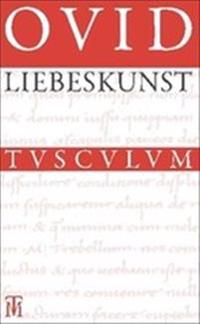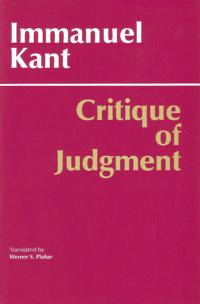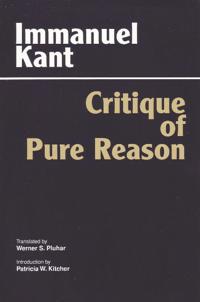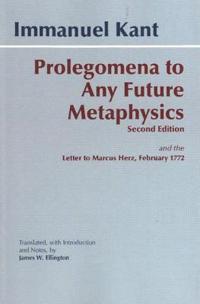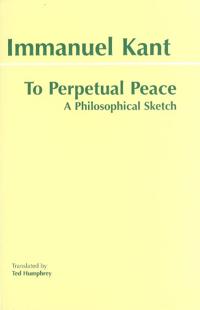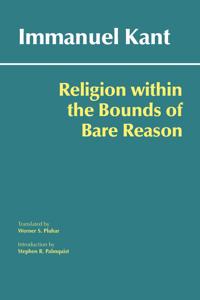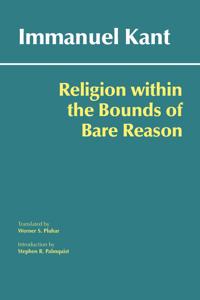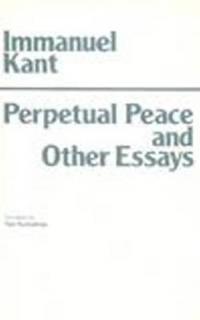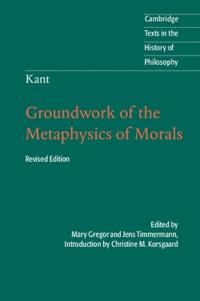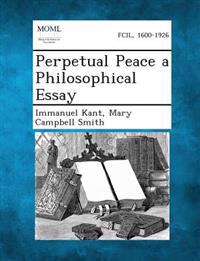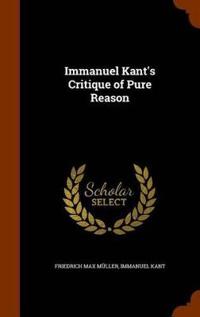Correspondence (Inbunden)
avImmanuel Kant
ISBN: 9780521354011 - UTGIVEN: 1999-05This is the most complete English edition of Kant?s correspondence that has ever been compiled. The letters are concerned with philosophical and scientific topics but many also treat personal, historical, and cultural matters. On one level the letters chart Kant?s philosophical development. On anoth[...]
Natural Science (Inbunden)
avImmanuel Kant
ISBN: 9780521363945 - UTGIVEN: 2012-10-04Brings together work by Kant never before available in English, and new translations of his important publications in natural science.[...]
Immanuel Kant's Moral Theory (Pocket)
avRoger J. Sullivan
ISBN: 9780521369084 - UTGIVEN: 1989-03This book, sure to become a standard reference work, is a comprehensive, lucid, and systematic commentary on Kant?s practical (or moral) philosophy. Kant is arguably the most important moral philosopher of the modern period; yet, prior to this area in a single volume. Using as nontechnical a languag[...]
Immanuel Kant: Groundwork of the Metaphysics of Morals (Inbunden)
ISBN: 9780521514576 - UTGIVEN: 2011-02Published in 1785, the Groundwork of the Metaphysics of Morals is one of the most powerful texts in the history of ethical thought. In this book, Immanuel Kant formulates and justifies a supreme principle of morality that issues universal and unconditional moral commands. These commands receive thei[...]
Theoretical Philosophy, 1755-1770 (Häftad)
avImmanuel Kant
ISBN: 9780521531702 - UTGIVEN: 2003-06This is the first volume of the first ever comprehensive edition of the works of Immanuel Kant in English translation. The eleven essays in this volume constitute Kant?s theoretical, pre-critical philosophical writings from 1755 to 1770. Several of these pieces have never been translated into Englis[...]
Prolegomena to Any Future Metaphysics (Pocket)
avImmanuel Kant, Gary Hatfield, Gary Hatfield
ISBN: 9780521535359 - UTGIVEN: 200404Kant is the central figure of modern philosophy. He sought to rebuild philosophy from the ground up, and he succeeded in permanently changing its problems and methods. This new, revised edition of the Prolegomena, which is the best introduction to the theoretical side of his philosophy, presents his[...]
Lectures on Logic (Häftad)
avImmanuel Kant
ISBN: 9780521546911 - UTGIVEN: 2004-09Kant?s views on logic and logical theory play an important part in his critical writings, especially the Critique of Pure Reason. However, since he published only one short essay on the subject, we must turn to texts derived from his logic lectures to understand his views. This volume includes three[...]
Practical Philosophy (Pocket)
avImmanuel Kant, Mary J. Gregor, Allen Wood
ISBN: 9780521654081 - UTGIVEN: 199906This is the first English translation of all of Kantâs writings on moral and political philosophy collected in a single volume. No other collection competes with the comprehensiveness of this one. As well as Kantâs most famous moral and political writings, the Groundwork to the Metaphysics[...]
Critique of Pure Reason (Pocket)
avImmanuel Kant, Paul Guyer, Allen W. Wood
ISBN: 9780521657297 - UTGIVEN: 199905This entirely new translation of Critique of Pure Reason is the most accurate and informative English translation ever produced of this epochal philosophical text. Though its simple and direct style will make it suitable for all new readers of Kant, the translation displays an unprecedented philosop[...]
Lectures On Anthropology (Inbunden)
avImmanuel Kant
ISBN: 9780521771610 - UTGIVEN: 2012-12-20The only English translation of recently edited transcriptions of Kant's lectures on anthropology, given between 1772 and 1789.[...]
Religion and Rational Theology (Häftad)
avImmanuel Kant
ISBN: 9780521799980 - UTGIVEN: 200103This volume collects for the first time in a single volume all of Kantâs writings on religion and rational theology. These works were written during a period of conflict between Kant and the Prussian authorities over his religious teachings. His final statement of religion was made after the de[...]
Immanuel Kant's Groundwork for the Metaphysics of Morals
ISBN: 9780674430136 - UTGIVEN: 2015-01A defining work of moral philosophy, Kant s Groundwork for the Metaphysics of Morals" has been influential to an extent far beyond what its modest length (roughly 75 pages) might suggest. It is also a famously difficult work, concerned with propounding universal principles rather than answering prac[...]
Introduction to Logic (Häftad)
avImmanuel Kant
ISBN: 9780760770405 - UTGIVEN: 201307"Introduction to Logic" might just as well be entitled An Introduction to Kant's Thought, for it serves as an excellent introduction to Immanuel Kant's entire philosophy, a philosophy that is generally overwhelming when approached from any of his other books. To the student and scholar of Kant's tho[...]
The Influence of the French Revolution on the Lives and Thought of John Adams, Thomas Jefferson, Edmund Burke, Mary Wollstonecraft, Immanuel Kant (Inbunden)
ISBN: 9780773426450 - UTGIVEN: 2012-07Immanuel Kant (Pocket)
avOtfried Hoffe, Marshall (TRN) Farrier, Otfried Hoffe
ISBN: 9780791420942 - UTGIVEN: 1994-09Critique of Judgment (Häftad)
avImmanuel Kant
ISBN: 9780872200258 - UTGIVEN: 198701Translated by Werner S. Pluhar.
Critique of Pure Reason (Häftad)
avImmanuel Kant
ISBN: 9780872202573 - UTGIVEN: 199612Like Werner Pluhar's distinguished translation of Critique of Judgment (Hackett Publishing Co., 1987), this new rendering of Critique of Pure Reason reflects the elegant achievement of a master translator. This richly annotated volume offers translations of the complete texts of both the First (A) a[...]
Prolegomena to Any Future Metaphysics (Häftad)
avImmanuel Kant
ISBN: 9780872205932 - UTGIVEN: 200203This edition of Prolegomena includes Kant's letter of February 1772 to Marcus Herz, a momentous document in which Kant relates the progress of his thinking and announces that he is now ready to present a critique of pure reason.[...]
To Perpetual Peace (Häftad)
avImmanuel Kant
ISBN: 9780872206915 - UTGIVEN: 200310What is the standing of a sovereign nation and what are its rights relative to other sovereign nations? What is our obligation to pursue peace? Can intervention in the affairs of another sovereign nation be justified? Who, if any one, has the right to intervene? In this short essay, Kant completes h[...]
Religion Within the Bounds of Bare Reason (Pocket)
avImmanuel Kant, Werner S. Pluhar, Stephen R. Palmquist
ISBN: 9780872209763 - UTGIVEN: 200903This volume provides Werner Pluhar's masterful rendering of Kant's major work on religion, an illuminating introduction by Stephen Palmquist, a selected bibliography, notes, glossary and a detailed index.[...]
Religion Within the Bounds of Bare Reason (Inbunden)
avImmanuel Kant, Werner S. (TRN) Pluhar, Stephen R. (INT) Palmquist
ISBN: 9780872209770 - UTGIVEN: 2009-03This volume provides Werner Pluhar's masterful rendering of Kant's major work on religion, an illuminating introduction by Stephen Palmquist, a selected bibliography, notes, glossary and a detailed index.[...]
Perpetual Peace and Other Essays on Politics, History, and Morals (Häftad)
avImmanuel Kant
ISBN: 9780915145478 - UTGIVEN: 1983-01TABLE OF CONTENTS: Introduction. Bibliography. A Note on the Text. 1. Idea for a Universal History with a Cosmopolitan Intent (1784) 2. An Answer to the Question: What Is Enlightenment? (1784) 3. Speculative Beginning of Human History (1786) 4. On the Proverb: That May Be True in Theory, but Is of [...]
Groundwork of the Metaphysics of Morals (Pocket)
avImmanuel Kant, Mary Gregor, Jens Timmermann
ISBN: 9781107401068 - UTGIVEN: 201205Published in 1785, Immanuel Kant's Groundwork of the Metaphysics of Morals ranks alongside Plato's Republic and Aristotle's Nicomachean Ethics as one of the most profound and influential works in moral philosophy ever written. In Kant's own words, its aim is to identify and corroborate the supreme p[...]
Perpetual Peace a Philosophical Essay (Häftad)
avImmanuel Kant
ISBN: 9781287349273 - UTGIVEN: 2013-09

